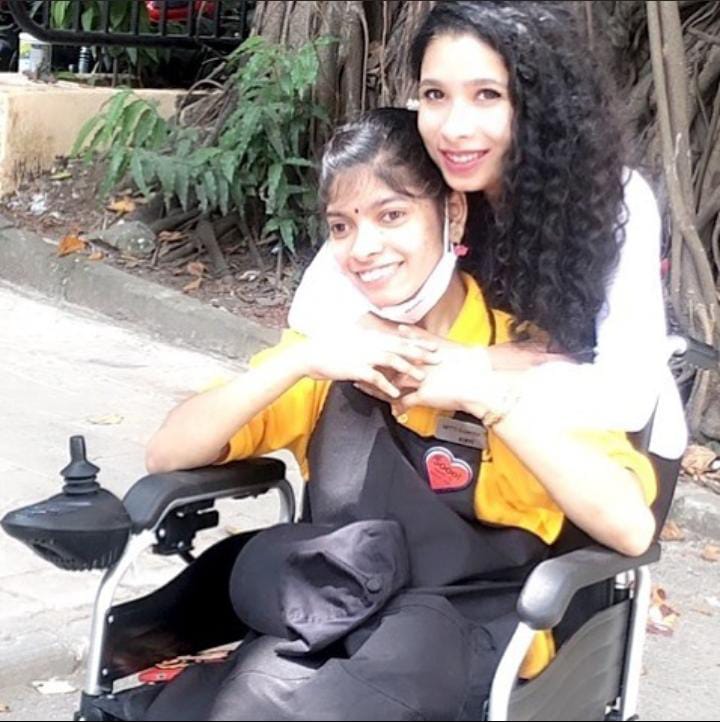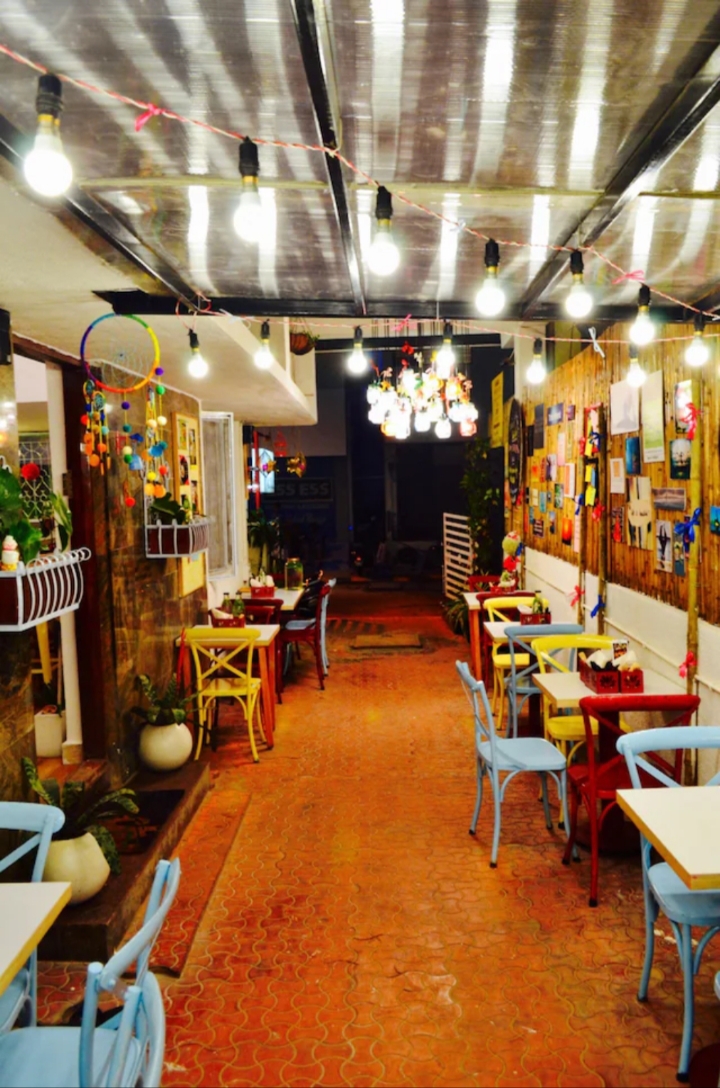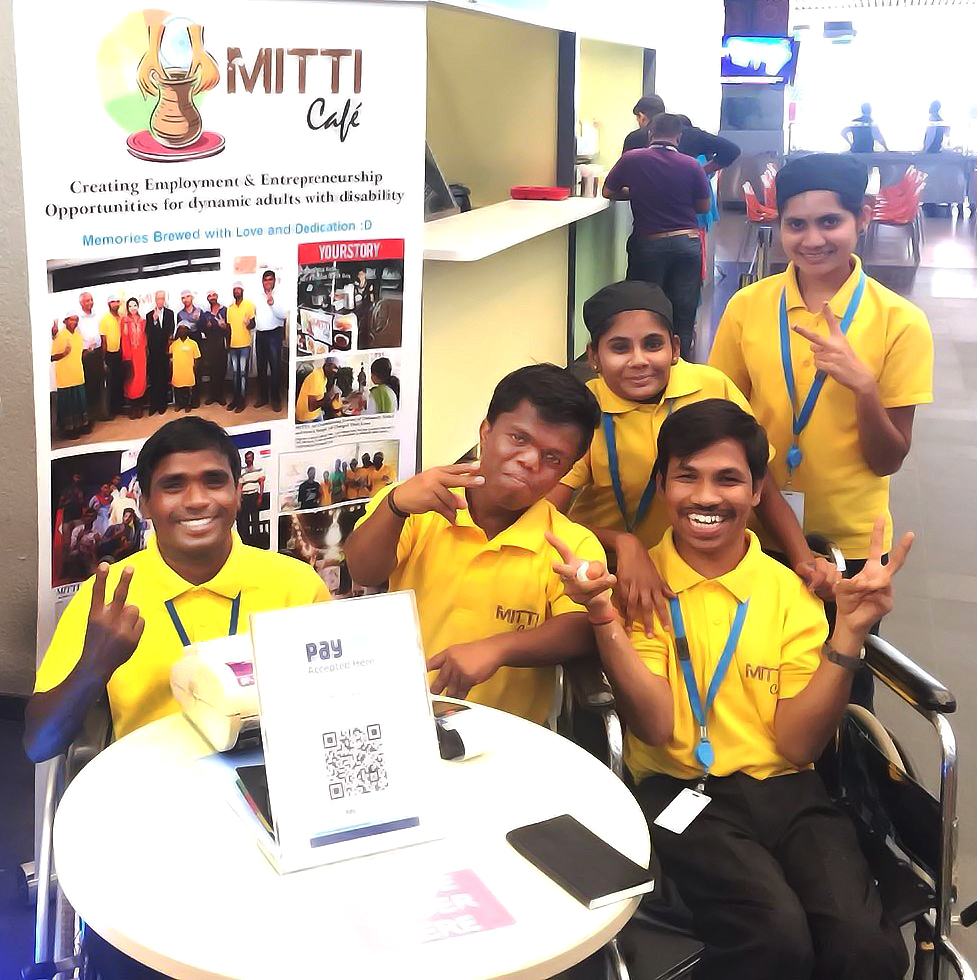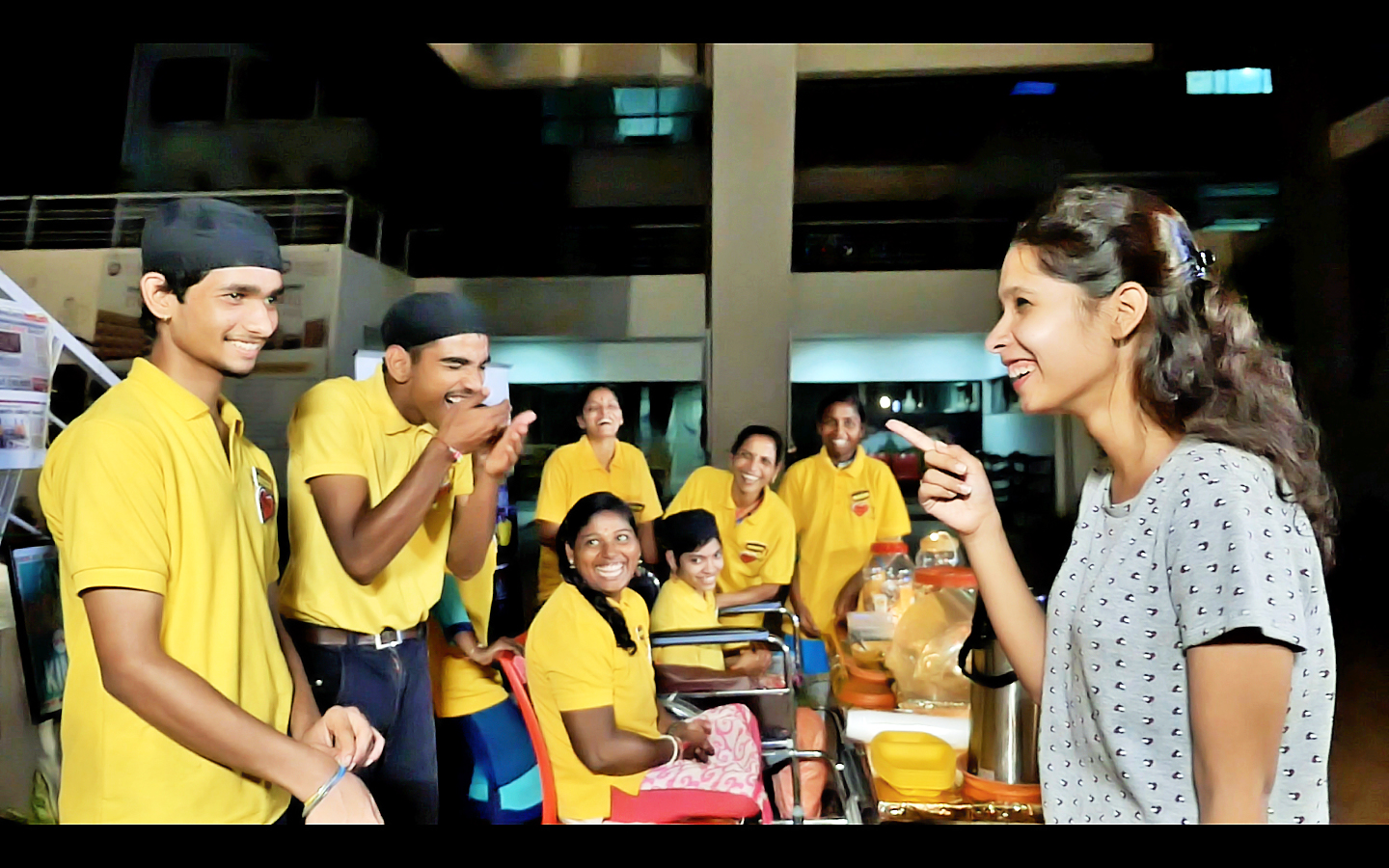(January 1, 2022) Alina Alam wears many hats. Entrepreneur, TedX speaker, Forbes 30 under 30, and Commonwealth Youth Award finalist. Winning awards is her zeitgeist — The NCPEDEP Mindtree Hellen Keller Award, the Microsoft Nipman Award, yes, the list is long and impressive. However, away from these accolades is a girl who cares and believes in the power of positive action. Bringing smiles to the differently-abled is what gives her immense joy, and if she can play matchmaker to some, then that’s all the better. Alam built Mitti Café to help people with disabilities join the workforce and compete with the best in business. Thanks to the café, there are people with visual and hearing impairments, Asperger’s and Down’s syndrome feeling the warmth of a life fulfilled.
Today, Mitti Café has 17 outlets across India, and has served over 6 million meals. What’s more, the clientele of hip and happening youngsters love tucking into their favourites from the menu that is also in Braille. A café like no other, when workplace accommodation is a struggle for the differently-abled across India, the café and Alina Alam have blazed new trails by employing the disabled.

The journey began at empowerment
The girl from Kolkata was no doubt egged on by her HR executive father, and her mother who is a homemaker. Her siblings often help in her cafe activities. Her sense of compassion comes no doubt from being raised in a family where monetary aspirations were not important, a social purpose was.
When Alam, 29, started the cafe, her mission was to empower persons with disabilities by providing them opportunities to succeed. Looking back, Alam says that it’s been a many-splendored journey.
She was just 23 when she first thought of doing something different and socially relevant. Pursuing her master’s in development studies at the Azim Premji University, Bengaluru, a documentary film on Roman emperor Nero left her with no doubt on her path ahead. The film showed Nero treating prisoners of war with extreme brutality before large crowds as the guests watched in silence or enjoyed the spectacle. It disturbed Alam. “I felt that the problem was not Nero as I feel the world will always have people like him. The problem was with the individuals who treated others as inconsequential. What if I am one of the guests at Nero’s party? If something wrong is happening and you are not taking sides, that means you are on the side of the oppressor,” she tells Global Indian Youth.


She then skipped campus placements and volunteered for organisations in the disability inclusion space. “I was passionate about doing something for the disabled,” she says. While working with Samarthanam Trust for the Disabled in Bengaluru, she saw what the differently-abled are capable of. “I understood that they have enormous potential but lack opportunities. They just need someone to guide and upskill them. What better way to reach out and connect them to the world than through food?” smiles Alam. Mitti Café was born, and the differently-abled got a new lease of life.
From dust to dust
The name of the cafe is unique. “Mitti” n Hindi means soil. “The concept is that everyone belongs to the soil and, we all will return to the soil one day. So, everyone is equal,” she adds.
It has been a rollercoaster ride since 2017, but a very fulfilling one. “Entrepreneurship is challenging. I had zero experience and no capital,” she remembers. So, she put on a brave face, and went door-to-door in Hubli, Karnataka, with pamphlets written in bold, calling the disabled to join her with no bar on age, education or experience. Only one person joined her. “She almost crawled in,” Alam smiles. “I got positive strength, and the journey started with one staff who was wheel-chair bound,” she adds.


A café office in Hubli in a dilapidated tin hut infested with rats, slowly things started falling in place, and Alam opened the first branch at the BVB College of Engineering and Technology campus in Hubli in August 2017.
In four years, she has opened 17 cafés in Bengaluru and Kolkata. Not content, Alam also provides experiential training and employment to adults with physical and intellectual disabilities so that they can get gainful employment. The organisation also creates awareness about inclusion and disability rights.
With 106 adults with special needs managing Mitti Cafés, the chain has served over 6 million meals in just four years. “We have 16 cafés within institutions such as Wipro, Infosys, Accenture, Wells Fargo Cytecare Hospital,” adds Alam.
The café has self-explanatory menu cards printed in Braille, are disabled-friendly, with no compromise on ambience. Then, there is the warm smile of the staffers to put one at ease. One of the critical features of the café is the extensive training programme, so the cafés are able to compete with the best in the business. “Our training includes hygiene, culinary skills, sessions about prevention of sexual harassment, etc,” explains Alam, who schooled at Modern High School for Girls and did psychology at Sophia College for Women.
The girl who makes lives better


During the pandemic too, Alam has been on point. The MITTI Karuna Meals gave migrants and others sustenance, serving over 7.2 lakh meals with plans to expand to thousands more. Alam, also recently got married to a Mumbai-based entrepreneur. She recalls the many rejections early on for her venture so when she got a call from Deshpande Foundation under condition that she move to Hubli, she moved lock, stock and barrel.
On her first foray in Hubli, she says, “I learnt the best lessons of resilience through the struggles. I also got to meet Narayan Murthy, who visited our cafe. That is how the Infosys cafe happened a year later,” she says. The Kolkata born Alam loves crooning, and is a newspaper junkie, which helps her stay abreast.
Today, her exuberance is double – she would like to start the café in every major city, with plans afoot for an outlet in Hyderabad in 2022, and wants to follow it up with Chennai and Mumbai. “Then I want to take Mitti Cafe international,” avers the girl whose belief and conviction have created a legacy to a section of society that has finally got its own girl saviour.
- Follow Alina Alam on LinkedIn



